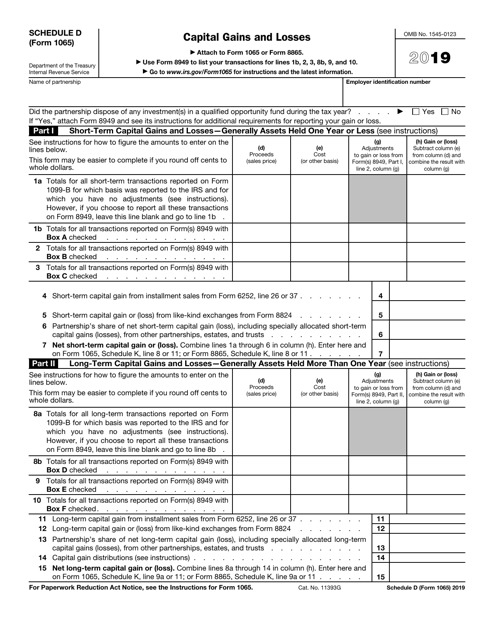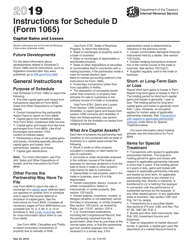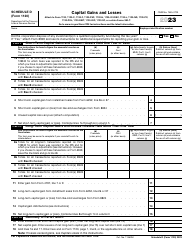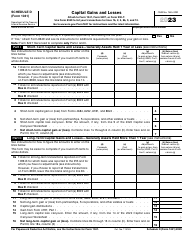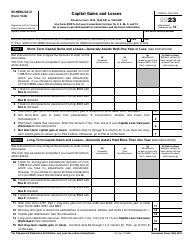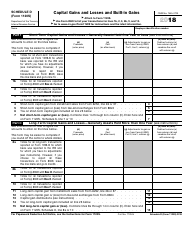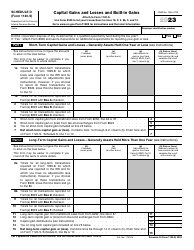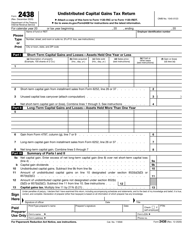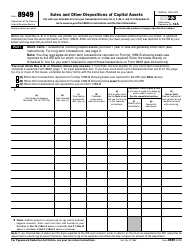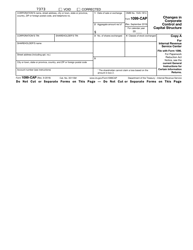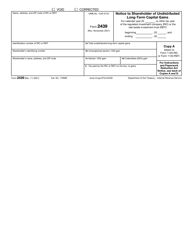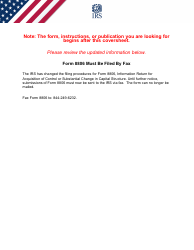This version of the form is not currently in use and is provided for reference only. Download this version of
IRS Form 1065 Schedule D
for the current year.
IRS Form 1065 Schedule D Capital Gains and Losses
What Is IRS Form 1065 Schedule D?
This is a tax form that was released by the Internal Revenue Service (IRS) - a subdivision of the U.S. Department of the Treasury. The document is a supplement to IRS Form 1065, U.S. Return of Partnership Income. Check the official IRS-issued instructions before completing and submitting the form.
FAQ
Q: What is IRS Form 1065 Schedule D?
A: IRS Form 1065 Schedule D is used by partnerships and certain other entities to report capital gains and losses.
Q: Who needs to file IRS Form 1065 Schedule D?
A: Partnerships and certain other entities need to file IRS Form 1065 Schedule D if they have capital gains or losses to report.
Q: What is the purpose of IRS Form 1065 Schedule D?
A: The purpose of IRS Form 1065 Schedule D is to report capital gains and losses incurred by partnerships and certain other entities.
Q: What information is required on IRS Form 1065 Schedule D?
A: IRS Form 1065 Schedule D requires taxpayers to provide details of their capital gains and losses, including the type of property, the date acquired and sold, and the amount of gain or loss.
Q: When is the deadline for filing IRS Form 1065 Schedule D?
A: The deadline for filing IRS Form 1065 Schedule D is usually the same as the deadline for filing the partnership's tax return, which is typically March 15th.
Q: Are there any penalties for not filing IRS Form 1065 Schedule D?
A: Yes, there may be penalties for not filing IRS Form 1065 Schedule D or for filing it late. It's important to comply with the IRS requirements and meet the filing deadline.
Q: Can I e-file IRS Form 1065 Schedule D?
A: Yes, partnerships and certain other entities can e-file IRS Form 1065 Schedule D using appropriate tax preparation software or through a tax professional.
Q: Is IRS Form 1065 Schedule D the same as Form 8949?
A: No, IRS Form 1065 Schedule D is used by partnerships and certain other entities, while Form 8949 is used by individual taxpayers to report capital gains and losses.
Q: Do I need to attach any additional documents to IRS Form 1065 Schedule D?
A: Yes, depending on the circumstances, you may need to attach supporting documents, such as brokerage statements or records of transactions, to IRS Form 1065 Schedule D.
Form Details:
- A 1-page form available for download in PDF;
- This form cannot be used to file taxes for the current year. Choose a more recent version to file for the current tax year;
- Editable, printable, and free;
- Fill out the form in our online filing application.
Download a fillable version of IRS Form 1065 Schedule D through the link below or browse more documents in our library of IRS Forms.
